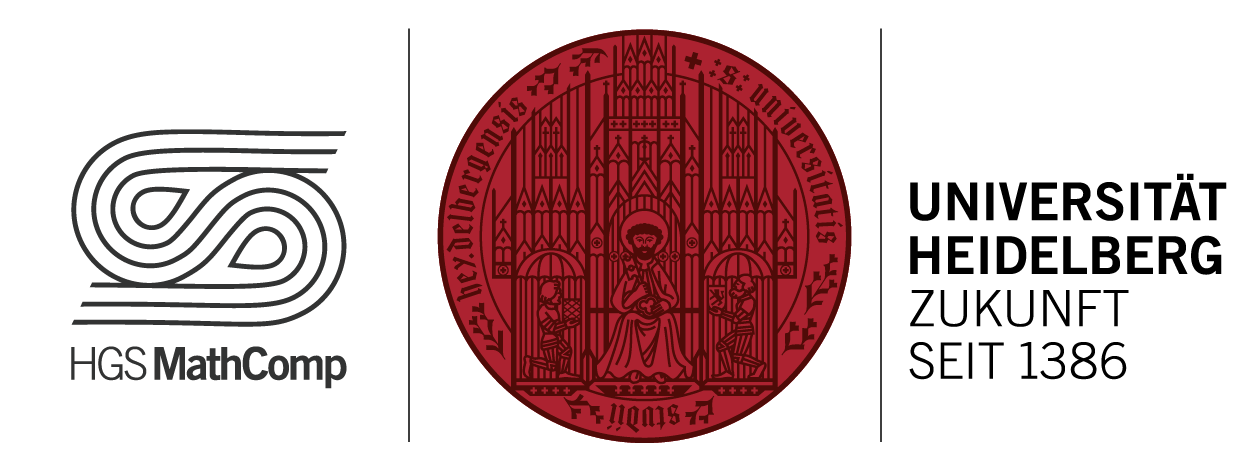HGS MathComp - Where Methods Meet Applications
The Heidelberg Graduate School of Mathematical and Computational Methods for the Sciences (HGS MathComp) at Heidelberg University is one of the leading graduate schools in Germany focusing on the complex topic of Scientific Computing. Located in a vibrant research environment, the school offers a structured interdisciplinary education for PhD students. The program supports students in pursuing innovative PhD projects with a strong application-oriented focus, ranging from mathematics, computer science, bio/life-sciences, physics, and chemical engineering sciences to cultural heritage. A strong focus is put on the mathematical and computational foundations: the theoretical underpinnings and computational abstraction and conception.
HGS MathComp Principal Investigators are leading experts in their fields, working on projects that combine mathematical and computational methodology with topical research issues. Individual mentoring for PhD candidates and career development programs ensure that graduates are fully equipped to take up top positions in industry and academia.
11:00 - 13:00
Location: hei_INNOVATION Studio • Im Neuenheimer Feld 370 • 69120 Heidelberg
Registration: Please register on the event website
Organizer: hei_INNOVATION
This event will be held in German.
Registration: Please register on the course website • Registration open until Febuary 19, 2026
Course start (online): 25 February, 2026
Summer school (Paris): 15-19 June, 2026
Registration deadline: 19 February, 2026
Full information available on the course website
Please note that there will be an additional selection for the summer school due to limited seats and funding. We anticipate 15 seats for Heidelberg, with a daily allowance of 79 € plus a travel grant of 211 €. It is possible to use your HGS MathComp travel grant for costs exceeding the 4EU+ funding.
You will receive credit as part of your HGS MathComp program with or without attendance of the summer school (the number of credits is to be determined and will be listed in the HGS MathComp course listing/calendar).
09:00 - 13:00
Location: Mathematikon • Im Neuenheimer Feld 205, 69120 Heidelberg
Registration: Please register on the course website
Organizer: Scientific Software Center (SSC)
The latest information and a registration link are available on the course website.
This compact course is part of the course program of the Scientific Software Center (SSC) at Heidelberg University.
Basic Python knowledge is required.
Summary:
Python has rapidly advanced to the most popular programming language in science and research. From data analysis to simulation and preparation of publications, all can be done in Python with appropriate libraries and implementing own modules. We will discuss Python Enhancement Proposals (PEP) and how these can help you write cleaner code. Common pitfalls in Python will be explained with examples. We will demonstrate typical “bad programming” and how to code the examples in a more pythonic way.
Learning Objectives:
After the course participants will
- Understand the basic PEP recommendations
- Use a linter and code formatter to ensure following of the guidelines
- Write better=more readable code
- Avoid bugs through best practices for example in passing keyword arguments


